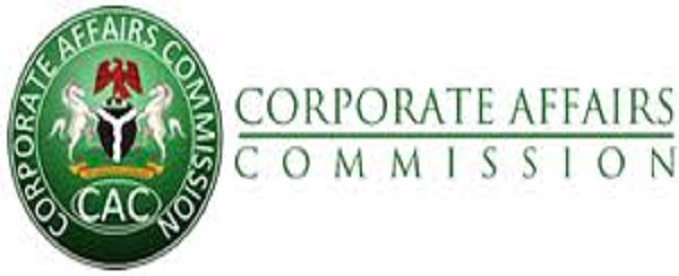News
Telecom Body Introduces New Global Guidelines to Protect Kids Online

The International Telecommunication Union (ITU) has launched its 2020 guidelines on Child Online Protection (COP), aimed at ensuring a safe and empowering online environment for children and young people.

The ITU says while the Internet and related digital technologies opened new ways for children to communicate, learn and play, they also exposed them to a range of content, contact and harmful conduct online.
The guidelines come as the world grapples with COVID-19, which has seen technology being placed at the centre of managing the spread of the virus, further exposing children and young people online.
According to the ITU, the new guidelines were designed from the ground up to reflect the significant shifts in the digital landscape in which children find themselves, such as the Internet of things, connected toys, online gaming, robotics, machine learning and artificial intelligence.
The guidelines consist of four parts tailored to key audiences: children, parents and educators, industry and policymakers.
The guidelines for children are available in a child-friendly format and consist of a story book for children under nine, a workbook for children aged nine to 11, and a social media campaign and microsite for children and young people aged 12 to 18.
“These resources help children learn how to manage risks online, while at the same time empowering them to exercise their rights online and engage in opportunities the Internet presents to them,” says the ITU.
The guidelines for parents and educators serve as a practical tool to help them effectively support children and young people’s interaction online, to sensitise families to the potential risks and threats, and help cultivate a healthy and empowering online environment at home and in the classroom.
The guidelines for industry aim at supporting industry players in the development of their internal COP policies, such as integrating child rights considerations into all appropriate corporate policies and management processes.
The ITU adds the guidelines help in “developing standard processes to handle child sexual abuse material; creating a safer and age-appropriate online environment; educating children, carers and educators about children’s safety and the responsible use of information and communication technologies; and promoting digital technology as a mode for increasing civic engagement”.
Policymakers are also included in the guidelines, as the ITU says they serve as a solid foundation on which to develop inclusive, multi-stakeholder national strategies, through open consultations and dialogues with children, to develop better-targeted measures and more efficient actions.
“ITU and its partners sought to create a highly usable, flexible and adaptable framework firmly based on international standards and shared goals, particularly the convention on the Rights of the Child and the United Nations Sustainable Development Goals.”
Commenting on the COP, ITU secretary-general Houlin Zhao says: “The question of how to ensure children’s online safety in the age of COVID-19 is now more pressing than ever before. ITU’s new guidelines on Child Online Protection are a very timely tool to safeguard the well-being, integrity and safety of our children, our most precious gift.”
Doreen Bogdan-Martin, director of the ITU telecommunication development bureau, says: “The new COP guidelines are designed to serve as a blueprint that can be adapted and used by different countries and stakeholders in a way that is consistent with national and local customs and laws.
“They can be considered as an initial step in engaging all relevant stakeholders – governments, the private sector, parents and teachers’ associations, and children themselves – in discussions around targeted measures and actions to create a safer online environment.”
News
Lasaco Assurance to Invest in Technologies, Systems to Deliver Value to Clients

Lasaco Assurance Plc, has said it would continue to invest in technologies and systems that delivers tangible value to clients and drive industry innovation.

Mr Abiodun Razzaq, Managing Director of Lasaco Assurance, who stated this at the 2025 customer forum organised by the company for its northern region customers in Abuja, said the forum’s interactive session offered an invaluable platform for open and constructive dialogue.
He said the forum brought together a distinguished assembly of customers, including policyholders, brokers, corporate clients, and industry partners, to engage in a robust dialogue aimed at enhancing service delivery and aligning offerings with the evolving expectations of the Northern market.
In his opening remarks, Regional Manager (Northern Region), Lasaco Assurance, Mr. Kunle Hamza underscored the company’s unwavering dedication to stakeholder engagement as a foundational pillar of its growth strategy. He emphazised that customer insights remain integral to shaping policies, refining service processes, and reinforcing the company’s brand promise.
He provided a compelling overview of Lasaco assurance’s recent performance and strategic priorities. He highlighted the company’s consistent premium income growth, bold digital transformation agenda, and ongoing operational restructuring designed to ensure responsiveness and resilience in a dynamic insurance landscape.
Addressing the customers, Mr. Adedayo Adetokun, Head of Strategy, affirmed that Lasaco assurance was actively developing multiple digital platforms to cater forvarious customer segments—part of a broader digital innovation roadmap that positions the company for future growth. He noted that human capital development was also being prioritised with targeted investments in talent acquisition and training to enhance operational capacity.
In his closing remarks, Mr. Muyiwa Anwoju, General Manager, Sales, expressed the management’s deep appreciation for the feedback received.
He assured participants that all contributions would be meticulously reviewed, categorised, and integrated into the company’s improvement plans. According to Anwoju, this forum marks the beginning of a renewed customer engagement framework, one that would be expanded across other regions in due course.
News
CAC Announces Upward Review of Service Fees

Corporate Affairs Commission (CAC) has announced an upward review of its service fees, which will take effect from August 1, 2025.

The announcement was made through the commission’s official social media page on Tuesday, June 17, 2025.
According to the CAC, the fee adjustment was necessary due to the current economic conditions, rising operational costs, and input from key stakeholders.
The statement read, “The Commission wishes to inform the General Public, Esteemed Customers, and all Stakeholders that in the continued efforts to improve its service quality and delivery, it has become necessary to review certain service fees effective the 1st day of August 2025.”
The commission explained that the fee changes are part of efforts to deliver better and more digitalised services while maintaining the integrity of Nigeria’s corporate registry.
The revised fee structure will affect services related to companies, business names, limited partnerships, and incorporated trustees.
Key fee changes announced by the Corporate Affairs Commission (CAC) include adjustments across various service categories.
For voluntary striking-off, the fee is now ₦50,000 for small companies and ₦100,000 for public companies, up from the previous ₦25,000.
Relisting a company will cost ₦50,000 for LTD/GTE and ₦100,000 for public companies.
Due diligence through self-service is set at ₦50,000. Requests for extension of time to hold an annual general meeting will now cost ₦100,000 for public companies and ₦50,000 for others.
Historical search reports will range from ₦20,000 to ₦30,000 per request. A restriction of a director’s residential address now attracts a ₦25,000 fee, while obtaining a certified true copy of documents or extracts will cost ₦5,000 per copy.
For limited partnerships, both voluntary striking-off and relisting will cost ₦25,000. A letter of good standing will be ₦10,000, registration and certified copies of documents will be ₦30,000, and a change of name will attract a ₦10,000 fee.
Regarding business names, voluntary striking-off is now ₦10,000, relisting ₦25,000, and an application for cessation ₦10,000. The certified true copy of documents will cost ₦5,000 each, and restriction of a proprietor’s address will also be ₦25,000.
Name reservations remain at ₦1,000, while reserved names with restricted words still cost ₦5,000.
The new fee structure is expected to impact business owners, lawyers, compliance officers, and others who interact with the corporate registry.
News
Global Travel Made Simple with Kaspersky eSIM Store

Kaspersky eSIM Store is a new connectivity solution for international travel. Designed to make it easier for leisure and business travellers to stay online globally, it empowers users with easy Internet access across 150+ countries and regions, with a choice of over 2,000 affordable data plans.

The production of eSIM-compatible devices has increased tenfold in the last five years according to the GSMA. By 2028, it is expected that half of all mobile connections worldwide will use eSIM technology.
This rise in popularity is driven by eSIM’s convenience and ease of use – eliminating the need for physical SIM cards and enabling a hassle-free experience wherever you go.
To meet this growing trend, Kaspersky eSIM Store provides access to eSIM plans from local telecom operators all over the world – with an easy interface and simple management.
A new way to always stay connected
Kaspersky eSIM Store lets users to enjoy affordable and easily accessible Internet connections around the globe without the hassle of physical SIM cards. Users can seamlessly access eSIM plans from local telecom providers in 150+ countries and regions worldwide, providing favourable rates and transparent conditions without any roaming fees.
While travelling, an eSIM can help users avoid high roaming costs on a primary SIM, remove the need to search for a local SIM kiosk and share personal data with them, as well as avoiding the use of unsecured public Wi-Fi networks.
Instead, eSIM ensures that leisure travellers can focus on the joyful moments of their trip and instantly share them with friends and relatives, while business travellers have continuous access to important messages, working documents and video calls.
Seamless connection in a few taps
Kaspersky eSIM Store features a user-friendly interface for plan selection, purchase, top-ups, and data usage management. Travellers can choose their preferred activation date, allowing them to set up their eSIM in advance and be connected the moment their trip begins — all in just a few taps.
To match the needs of any traveller, there are many flexible ways to choose and manage data plans.
Options are available based on destination, including plans for specific countries, global plan 122 destinations, or mini-global plans tailored to specific regions.
For trip duration, travellers can select between expiring plans valid for a fixed period or non-expiring plans that remain active until the data is fully used. This ensures convenience whether the trip is short or long.
Additionally, users have control over when their plan starts. They can either schedule activation for a specific date or begin using the data immediately, providing flexibility to align with their travel schedule.
To ensure users never run out of GB unexpectedly, Kaspersky eSIM Store provides real-time data usage monitoring and alerts when a balance is near zero. The user profile (on the webpage or in the app) allows quick top-ups and supports multiple countries on a single eSIM – install once and use for a lifetime.
Kaspersky eSIM Store is launched in partnership with award-winning provider BNESIM Limited, which has been delivering global eSIM services since 2017.
“At Kaspersky we are constantly keeping up with latest trends shaping our digital habits, and eSIM is definitely one of them. eSIM technology greatly simplifies travelling abroad, allowing people to stay connected and not worry about issues like roaming charges.
“We know from our own experience how important it is to stay in touch with your family or colleagues when you are on a trip, so we designed Kaspersky eSIM Store for all types of travellers to ensure instant access to eSIM data plans wherever they go, as well as to provide a safe and positive digital experience,” – Mikhail Gerber, Executive Vice President, Consumer Business, Kaspersky.
Kaspersky eSIM Store complements Kaspersky’s wide range of industry-recognised solutions, such as Kaspersky VPN Secure Connection and Kaspersky Premium. Together they cover all modern connectivity needs and enhance digital freedom – ensuring safe, worry-free connectivity across the world.

 Telecom2 days ago
Telecom2 days agoALTON Clarifies on Migration to End-User Billing for USSD Services

 Telecom3 days ago
Telecom3 days agoGSMA, Mobile Industry Call for Strengthened Action to Advance Child Online Protection in Africa

 News2 days ago
News2 days agoDigital Africa Global Consult, NDPC Partner on Ground-Breaking “Nigeria Data Challenge” Initiative

 General News3 days ago
General News3 days agoTD Africa, HP Strengthen Partnership to Advance Africa’s Tech Ecosystem

 E-Financial2 days ago
E-Financial2 days agoNigerian Stock Market Suffers ₦183 Billion Loss Amid Profit-Taking

 News2 days ago
News2 days agoDStv Rewards Loyal Customers with Free Package Upgrades

 Telecom2 days ago
Telecom2 days agoLagos Future Conference 2025: Stakeholders Call for Digital Responsibility and Grassroots Innovation

 General News2 days ago
General News2 days agoAfrican Parliamentarians Seek Answers from Telcos on Quality of Service




























